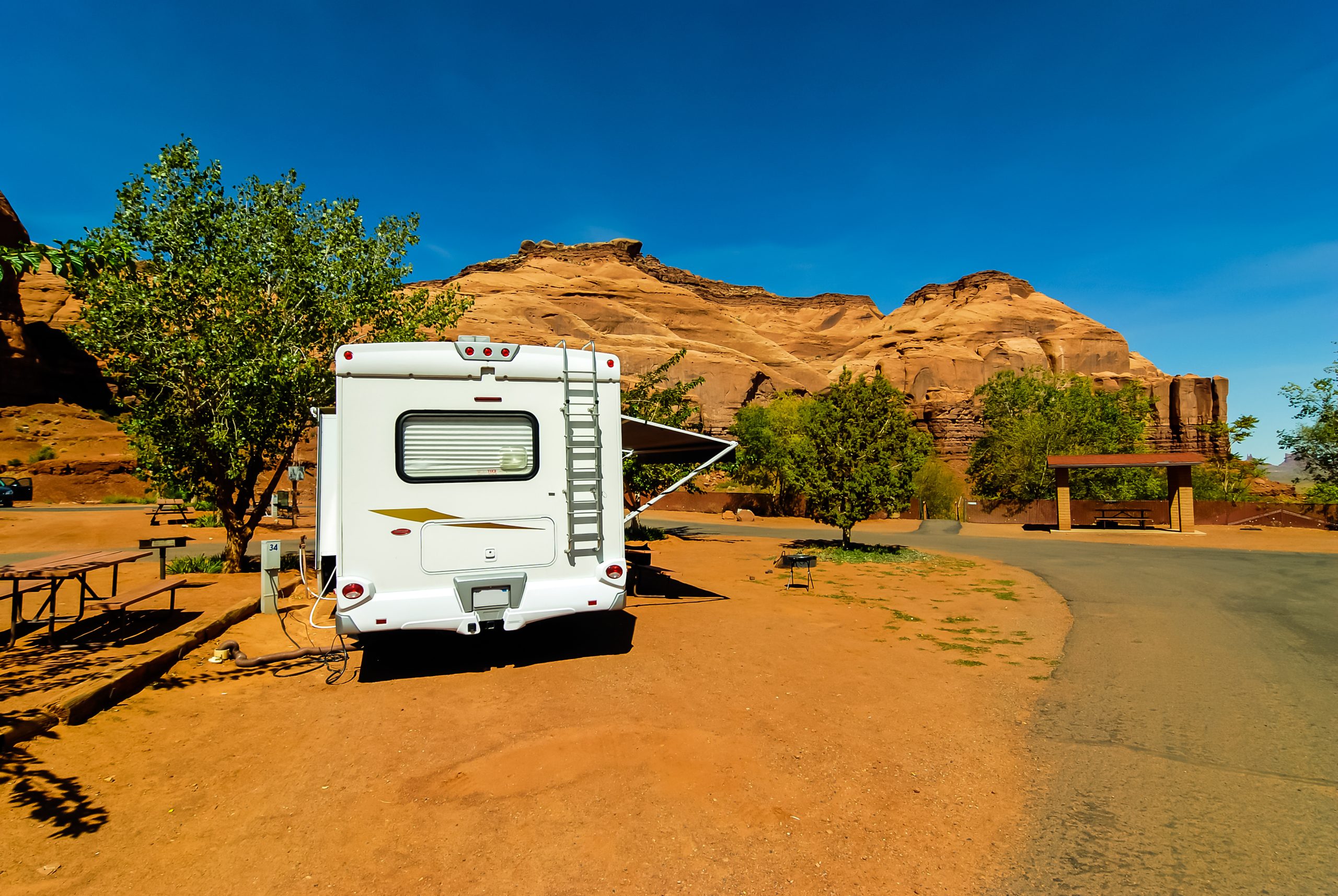If you’re planning to explore the open road in your RV, chances are you’ll pass through some of the country’s most beautiful and culturally rich regions—including Indian reservations. With more than 300 reservations located across the United States, many RV travelers find themselves visiting or even living on tribal lands. But what does that mean for your RV insurance?
At Happy Camper Insurance, we believe adventure should be worry-free. That’s why we’re breaking down the unique considerations of RV insurance when traveling to or living on Native American reservations—so you can cruise confidently, no matter where your journey takes you.
Understanding Sovereignty on the Road
Indian reservations are governed by federally recognized tribes and operate with tribal sovereignty. This means they have the authority to enact and enforce their own laws—including traffic regulations and vehicle safety codes—independent of the state in which they are located.
While many laws on reservations are similar to those off-reservation (like wearing seatbelts or adhering to DUI limits), enforcement is handled differently. Tribal police oversee traffic matters, and if you’re involved in an incident or receive a ticket while on tribal land, you may fall under tribal court jurisdiction.
For RVers, this adds a layer of complexity—especially when it comes to legal disputes or claims involving accidents on reservation land. That’s where the right insurance policy can make all the difference.
Does Your RV Policy Cover You on Tribal Land?
In most cases, your standard RV insurance policy will continue to provide coverage while you’re driving on or camping within Indian reservations. However, not all insurers are equally equipped to handle claims in these unique jurisdictions.
Before hitting the road, take the time to:
- Confirm your coverage areas: Ask your insurer directly if tribal land is covered under your current policy.
- Double-check liability coverage: This is especially important if you’re towing or operating a larger Class A or C motorhome, which can cause greater damage in an accident.
- Consider adding uninsured/underinsured motorist protection: This coverage can protect you financially if you’re involved in an accident with someone who doesn’t have adequate insurance—an issue that may arise more frequently in regions with fewer coverage requirements.
- Carry comprehensive and collision coverage: Tribal land can include rural, remote areas where weather or wildlife can present hazards. Having a full-coverage policy ensures you’re protected from the unexpected.
Living in an RV on Tribal Land? Here’s What to Know
Some RVers choose to live full-time on reservation land, either for work, family, or simply the connection to a quieter, nature-rich lifestyle. If this is you, obtaining proper RV insurance may require some extra diligence.
RV owners living on reservations may encounter:
- Jurisdictional gray areas: Because tribal laws may differ from surrounding state laws, your insurer must navigate a more complex claims process if an incident occurs.
- Limited provider options: Not all national insurance companies underwrite policies for vehicles garaged or registered on reservations, particularly in more remote or underserved areas.
- Varying infrastructure conditions: Roads on reservations can range from well-maintained highways to more rugged routes. Insurers may assess additional risk based on these conditions, which can affect premiums.
Some carriers specialize in tribal coverage and are better equipped to provide policies suited to the unique needs of residents on reservations. Be prepared to shop around—and work with a provider who understands the full picture of RV life on tribal land.
Planning a Visit? Be Respectful and Prepared
Whether you’re heading to a tribal park, casino, or cultural event, many reservations welcome respectful visitors and RV travelers. But every tribe is different. Some require permits, some have entry restrictions, and others may request visitors stay in designated areas.
Before you go:
- Research the specific tribe’s policies on visitors and overnight stays.
- Be aware of local driving laws and enforcement practices.
- Ensure your insurance documents are current and accessible in case of an incident.
Traveling through Native lands is a privilege—one that comes with the responsibility of honoring local laws, culture, and sovereignty.
Coverage That Goes Where You Go
At Happy Camper Insurance, we believe your RV coverage should be as adventurous as you are. Whether you’re crossing state lines or tribal boundaries, your policy should provide the peace of mind that lets you focus on the journey, not the paperwork.
If you live on or plan to travel through a reservation in your RV, contact Happy Camper Insurance today. We’ll help you explore coverage options that match your lifestyle and ensure you’re protected—wherever the road leads.Let’s keep you covered for the miles ahead. Reach out to Happy Camper Insurance to get a personalized quote and travel with confidence.


